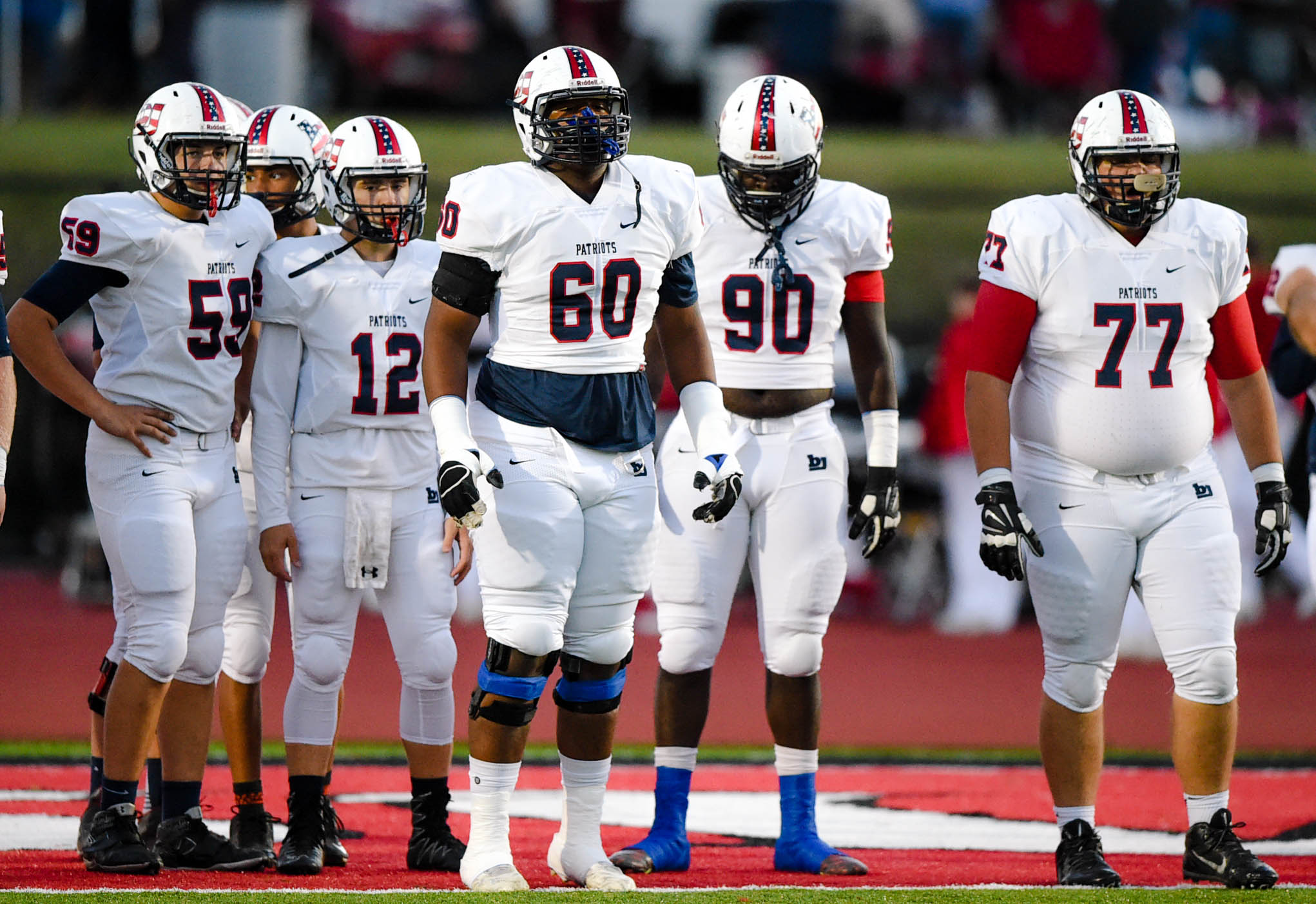10 tips that will help you get into college and play sports

By USA Football | Posted 11/3/2017
For college coaches, recruiting season starts now.
For high school football players, this means it’s time to get everything in line and put your best foot forward.
Here are 10 tips that can help a student-athlete before the recruiting process starts.
- Grades, grades, grades. Don’t wait until junior year to start studying. The NCAA has rules in place that requires a steady accumulation of core courses over an entire high school career. The earlier you show effort classroom, the more it will impress college recruiters and show on the field. Having great grades all four years says a lot about your work ethic. A great motto for all student-athletes: “Excel in the classroom and you will excel on the field.”
- Character. It is important. How you interact with coaches, teammates, teachers, peers, and people in your community. Are you disrespectful and know it all, or do you lead by example? College coaches aren’t looking for people who need constant attention because of behavioral issues. Your character says a lot about you as a person and how likely you are to succeed in college.
- Commitment. Be the first one to practice, weight room and team meetings. It shows you are a dedicated team player. This also will help you when you ask your high school coach for help with networking.
RELATED: Recruiting advice every high school football player needs to hear
RELATED: NCAA launches new website to answer eligibility questions
- Finances. When the letters start coming from college football programs, it is important to know if they are interested in you or are you just on the mailing list as a potential walk-on? Open lines of communication with coaches and financial aid offices to see what kind of assistance is out there. Until you ask for help, you will never know.
- Find a home. No matter how talented you are, make sure you go to a college that fits your personality and where you will enjoy being for the next four years. Ask yourself these questions. Is playing time or playing for a championship more important to you? Where do you get along with coaches? Do you prefer a campus that is closer to home, in a city or in a certain conference? Are you going somewhere just because one of your friends is going there? It is important to feel connected so you complete all four years and receive your diploma.
- The right major. Make sure the university offers what you want to study. Fewer than 6 percent of college players will make it in the NFL. That means 94 percent of NCAA football players enter the workforce. For example, if you want to be a certified athletic trainer or engineer or pre-law, and your school doesn’t offer it, why are you there? Visit the campus, don’t just go to the stadium on game day; sit in on classes as well.
- Networking. You are not the first player from your high school to go on to play in college. Ask your high school coach to help you with connections. It will really help you in the long run, especially with all the different methods there are for sharing film.
- Be honest and upfront. When a college scout shakes your hand, he wants to see if you are the same height as listed in your stats and how firm your handshake is. Always look someone in the eye when shaking hands and talking.
- Ask questions. When a coach calls, ask how they acquired your contact information. Also, ask questions such as: Do they have your major? What’s the graduation rate? How many players do they bring in each year? How many seniors are on the team? What position are they wanting you to play? How many players are currently at that position?
- Social media. This has had an impact on athletes and college recruiting during the last 10 years. It is important for every student-athlete to remember that you never know when someone is going to record or take a picture and post it. Think before you act. You don’t want to turn off your top colleges and lose everything you worked hard for because of one wrong decision. Keep all of your social media accounts clean.
RELATED: Social media cost this star athlete his Division I scholarship—now he's trying to educate others
This is your future. Don’t rush into it unprepared.
This is an updated version of a blog that originally posted Nov. 12, 2015
